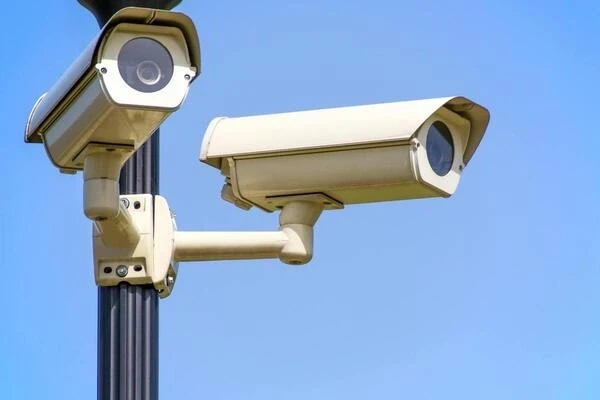Guwahati’s ₹203 crore CCTV surveillance project, first announced in 2018, remains largely incomplete with only 200 cameras installed across the city-raising serious concerns about public safety and state accountability In 2018, authorities in Guwahati announced a citywide CCTV surveillance plan to enhance security and public safety.
Seven years have passed, and the implementation remains painfully slow. Although the project was approved long ago, installation work only began in September 2024. As of now, merely 200 CCTV cameras have been installed-and that too, only along GS Road, one of the city’s busiest commercial stretches. The slow pace of progress has left many questioning whether the ₹203 crore project has been given the seriousness it deserves in a city grappling with rapid urbanisation and rising crime.
Speaking to GPlus on condition of anonymity, a source in Guwahati Smart City Limited (GSCL) said, “2,000 CCTV cameras will be installed across Guwahati, especially at vulnerable places,” highlighting that the project is still in progress. The surveillance system is being set up in phases and will be connected to a centralised command and control centre. This centre, currently under construction, is located on the fourth floor of the newly built Commissioner’s office at Khanapara. “By end of 2025 all 2,000 CCTV cameras will be installed,” the GSCL source added. However, considering that only 200 cameras have been installed so far after nearly a year of work and seven years since the project was announced, the claim seems overly optimistic. Out of 800 planned poles for mounting the cameras, only 690 have been installed. GSCL further said that 90% of the IT and non-IT hardware and software has been procured, which shows that material readiness is not the issue-it is the pace of physical implementation that is lagging.
The delayed timeline is even more concerning given the legal backing for public surveillance. In 2023, the Assam government introduced the “Assam Public Safety (Measures) Enforcement Bill” in the state assembly. The bill, tabled by then Housing and Urban Affairs Minister Ashok Singhal, made it mandatory for owners of public places-including commercial establishments, religious institutions, educational centres, industrial units, and residential buildings-to install CCTV cameras. The goal was to ensure public safety in areas of heavy congregation. The bill mandated that all such surveillance footage must be stored for a minimum of 30 days and should be made available to government authorities upon request. In keeping with this, the GSCL source confirmed that the cameras being installed under the city project “will also have a storage capacity of 30 days,” aligning with the legislative requirement.
The legislation places the onus of public safety not just on the state but also on private and institutional actors, many of whom have begun complying with the mandatory CCTV installation. However, the state’s own delay in implementing its flagship surveillance project raises questions of accountability and commitment. While private entities face legal consequences for non-compliance, the government itself is far behind schedule. The project is being implemented by Guwahati Smart City Ltd, with Ernst & Young LLP as the Project Management Consultant. The plan is to hand over the system to Assam Police once completed. Until then, the incomplete network leaves vast portions of the city unsupervised and vulnerable.
The need for a robust CCTV network in Guwahati cannot be overstated. The city is one of the fastest-growing urban centres in the Northeast, often referred to as the region’s gateway. It has seen exponential growth in population, traffic, and infrastructure development. With such growth come challenges related to law enforcement, crowd control, and crime prevention. Other Indian cities have made significant strides in public surveillance, integrating AI and smart analytics with real-time monitoring. Guwahati, by contrast, remains stuck in the early stages, with only a small stretch of one road under surveillance after nearly seven years. The proposed Integrated Command and Control Centre (ICCC) at Khanapara is vital for the system’s success, yet it is still under construction, further delaying operational readiness.
It is also worth noting that the GSCL project is being implemented in a phased manner, and this has been cited as one reason for the slow pace. However, citizens and observers argue that seven years is too long a delay for any project that directly relates to public safety. While GSCL maintains that the project will be completed by the end of 2025, the sluggish rollout so far does little to inspire confidence. The statement-“since 2018, it’s been quite many years, hopefully the CCTV project is over by end of this year”-though made informally, captures the public mood perfectly. The hope now rests on GSCL and the state government to accelerate the remaining work and avoid another extension that would push the project into its eighth or ninth year. Without tangible progress in the coming months, the city risks falling further behind in adopting modern security infrastructure that is no longer optional but a necessity in today’s urban environments.
